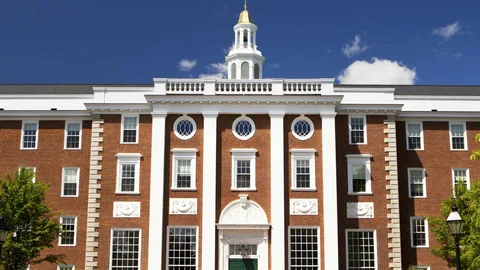Introduction
Harvard University, founded in 1636, is the oldest institution of higher education in the United States and one of the most prestigious in the world. Located in Cambridge, Massachusetts, it has a rich history, a diverse student body, and a commitment to academic excellence that continues to influence education globally.

Historical Background
Harvard was established by the Massachusetts legislature and named after its first benefactor, John Harvard, a young minister who left his library and half his estate to the institution upon his death in 1638. Initially, the university aimed to train clergy, but its mission quickly expanded to include a broader educational scope.
Throughout the centuries, Harvard has evolved significantly, adapting to societal changes and expanding its academic offerings. The university played a crucial role during the American Revolution and was instrumental in shaping the nation’s intellectual landscape.
Academic Structure
Harvard is organized into various schools and colleges, each specializing in different fields of study:
- Harvard College: The undergraduate division, offering a liberal arts education.
- Harvard Law School: One of the most prestigious law schools globally, known for its rigorous curriculum and influential alumni.
- Harvard Business School: Renowned for its MBA program and case study teaching method.
- Harvard Medical School: A leader in medical education and research, contributing to advancements in healthcare.
- John F. Kennedy School of Government: Focusing on public policy and administration, it prepares students for leadership in public service.
Campus Life
Harvard’s campus is a vibrant community with over 400 student organizations, ranging from cultural groups to academic clubs. The university is also known for its rich traditions, such as the Harvard-Yale football game and the annual Harvard Square May Fair.
The Harvard Library system is one of the largest academic libraries in the world, housing over 20 million volumes across its various libraries. Students have access to extensive resources for research and learning.
Research and Innovation
Harvard is a powerhouse of research, consistently ranking among the top universities for research funding and output. Its faculty includes numerous Nobel laureates, MacArthur fellows, and Pulitzer Prize winners. The university is known for its contributions to various fields, including science, technology, social sciences, and humanities.
Harvard is also at the forefront of innovation, with initiatives like the Harvard Innovation Labs supporting student entrepreneurs and fostering a culture of creativity and entrepreneurship.
Diversity and Inclusion
Harvard is committed to fostering a diverse and inclusive environment. The university actively works to recruit students from various backgrounds, ensuring that its community reflects a wide range of perspectives. Programs and resources are in place to support underrepresented groups and enhance the overall student experience.
Alumni Network
Harvard boasts an impressive alumni network, including U.S. presidents, Supreme Court justices, and leaders in business, science, and the arts. Notable alumni include Franklin D. Roosevelt, John F. Kennedy, Barack Obama, and numerous Fortune 500 CEOs. This network provides current students with invaluable connections and mentorship opportunities.
Conclusion
Harvard University stands as a beacon of academic excellence, innovation, and leadership. Its commitment to education, research, and community engagement ensures that it will continue to shape the future of higher education. As it moves forward, Harvard remains dedicated to its mission of fostering knowledge, promoting understanding, and preparing leaders for a complex world. With a rich history and a dynamic present, Harvard University remains a symbol of intellectual achievement and a catalyst for change.

